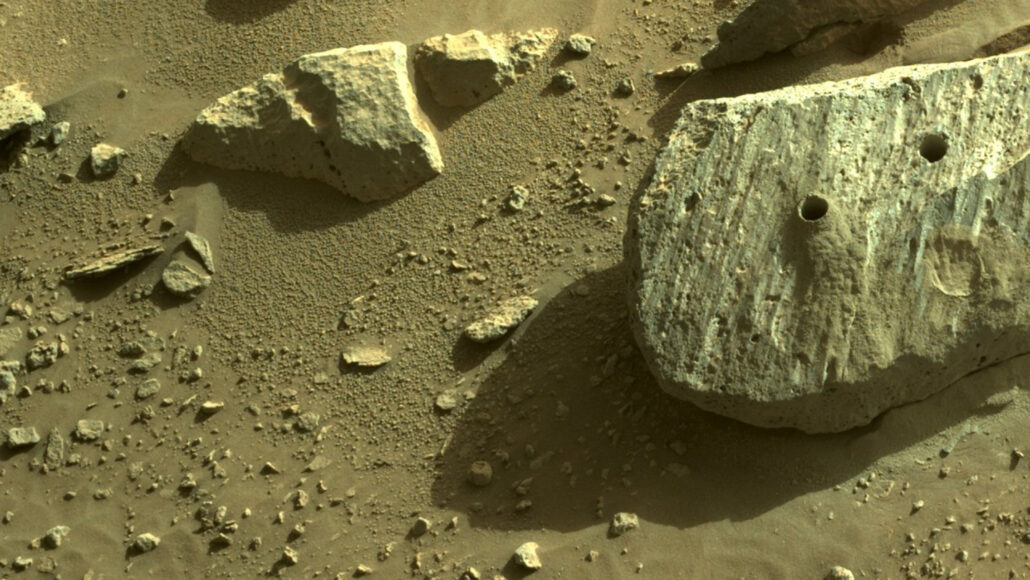basalt: A type of black volcanic rock that tends to be very dense (unless volcanic eruptions seeded it with lots of air pockets).
chemistry: The field of science that deals with the composition, structure and properties of substances and how they interact. Scientists use this knowledge to study unfamiliar substances, to reproduce large quantities of useful substances or to design and create new and useful substances.
concentration: (in chemistry) A measurement of how much of one substance has been dissolved into another.
crater: A large, bowl-shaped cavity in the ground or on the surface of a planet or the moon. They are typically caused by an explosion or the impact of a meteorite or other celestial body. Such an impact is sometimes referred to as a cratering event.
element: A building block of some larger structure. (in chemistry) Each of more than one hundred substances for which the smallest unit of each is a single atom. Examples include hydrogen, oxygen, carbon, lithium and uranium.
environment: The sum of all of the things that exist around some organism or the process and the condition those things create. Environment may refer to the weather and ecosystem in which some animal lives, or, perhaps, the temperature and humidity (or even the placement of things in the vicinity of an item of interest).
graduate student: Someone working toward an advanced degree by taking classes and performing research. This work is done after the student has already graduated from college (usually with a four-year degree).
groundwater: Water that is held underground in the soil or in pores and crevices in rock.
habitable: A place suitable for humans or other living things to comfortably dwell.
isotopes: Different forms of an element that vary somewhat in mass (and potentially in lifetime). All have the same number of protons in their nucleus, but different numbers of neutrons.
lava: Molten rock that comes up from the mantle, through Earth’s crust, and out of a volcano.
Mars: The fourth planet from the sun, just one planet out from Earth. Like Earth, it has seasons and moisture. But its diameter is only about half as big as Earth’s.
milestone: An important step on the road to stated goal or achievement. The term gets its name from the stone markers that communities used to erect along the side of the road to inform travelers how far they still had to go (in miles) before reaching a town.
millennia: (singular: millennium) Thousands of years.
mineral: Crystal-forming substances that make up rock, such as quartz, apatite or various carbonates. Most rocks contain several different minerals mish-mashed together. A mineral usually is solid and stable at room temperatures and has a specific formula, or recipe (with atoms occurring in certain proportions) and a specific crystalline structure (meaning that its atoms are organized in regular three-dimensional patterns).
perseverance: The quality that allows someone to continue trying to do something even though it is difficult
planetary science: The science of planets other than Earth.
pristine: An adjective referring to something that is in original or near-original condition. It means something is somewhat old but in a seemingly “untouched” or unaltered condition.
salt: A compound made by combining an acid with a base (in a reaction that also creates water). The ocean contains many different salts — collectively called “sea salt.” Common table salt is a made of sodium and chlorine.
trove: A collection of valuable things.








